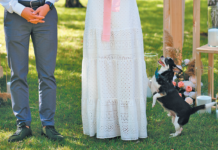People often assume that if an older dog has wound up in a shelter or kennel, it means he was an incorrigible animal, unable to fit into a human family and finally needing to be given up. But in just about all cases, mature dogs are relinquished not because of something about them but because of something about the people to whom they belonged. Sometimes, sad to say, it’s simply that the novelty of having a dog has worn off. Even some very expensive, purebred dogs who are exceptionally well-trained but were bought on impulse end up dumped. Other times, it’s not the cruelty of an impulse that renders a mature dog homeless but a change in family circumstances. Perhaps the dog’s owner has died. Or a well-meaning household realizes they simply no longer have enough time for their pet — perhaps there has been a change in the work schedule or a new baby has arrived.
In some cases, a dog’s human guardians have moved to an apartment complex where dogs are not allowed. Or the children have gone off to college, and the dog was really there in the first place for them, not the parents. Then, too, allergic reactions to dogs can spring up unexpectedly; sometimes a family can have a dog for quite a while before someone in the household reacts with sneezing and watery eyes. Or a single person is going to be married, and the prospective spouse is allergic to dogs, or simply doesn’t like them or is afraid of them.
In other words, if you see an adoptable older dog who seems like he would be a good fit in your home, chances are he will be. He’s available not because of intractable behavior problems or some awful health issue but because whoever was taking care of him had a change of heart — or lifestyle — that precluded his remaining in the family.




